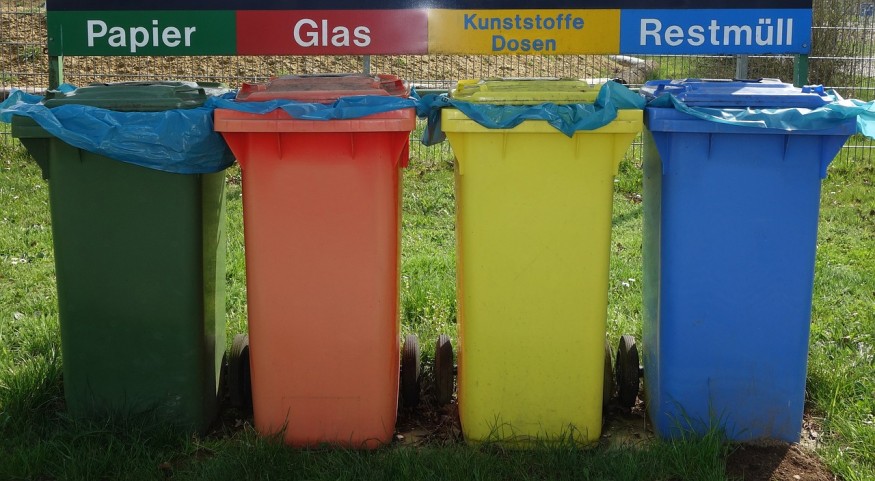While many Americans put their trash in the recycling items dutifully, the bad news is recycling is not working in the U.S.
In a blog article in Earth Institute in Columbia University site, it cited several trash problems in the country. These concerns include contaminated recyclables, and a massive amount of non-recyclables which end up in incinerators and landfill: both of which harm the environment.

Lastly, it indicated that for several years, the U.S. is dependent on China for recycling. In 2016 alone, plastic, paper and metals sent to China totalled to 16 million tons. But only 30 per cent of these mixed recyclables gets contaminated by non-recyclables. It ended up in China's countryside and oceans instead. China imposed stringent policy standards on plastics being imported in 2018, prompting the U.S. to ship Vietnam, Malaysia and Thailand and eventually to Cambodia, Bangladesh, Ghana, Laos, Ethiopia, Kenya and Senegal.
But are there places which have exemplary models of recycling?
The answer is there are.
Here are places with commendable recycling practices.
Japan
Residents are required to wash items, remove labels and folding cartons. Waste is also labelled so that individuals are held accountable for their misuse. A village called Kamikatsu classifies their waste into 34 categories, with a target of achieving zero waste this year.
Germany
Fifty-six (56) per cent of Germany's trash is recycled by providing different coloured bins for different coloured glass and other items. A Green Dot recycling system is also in place: a green dot placed on a packaging material indicates that the manufacturer subsidizes the cost of collection and recycling. These manufacturers pay a waste collection company a license fee based on weight so that their packaging is picked up, sorted and recycled.
South Korea
Fifty-four (54) per cent of its trash is recycled, including 95 per cent of its food waste. Food waste was reduced dramatically when the country provided bins for organic waste. The bins are weighed, and the heavier it weighs, the higher amount the residents are charged. There is free pick up services for recyclables, but other trashes also has charged, depending on the weight.
San Francisco
It aims for zero waste, and 80 per cent of its waste has been recycled. Residents and companies are required to separate their waste into three: Blue bins for recyclables, green for compostables, and black for materials that end up in the landfill. Compostable and recyclable containers are required from food vendors. Events are required to do recycling and composting. On July 1, stores will charge 25 cents for check out bags, and bags for take-out and delivery.
Los Angeles
Eighty per cent (80) per cent of its wastes are recycled, and it aims that 90 per cent of its wastes are recycled by 2025. Composting of food waste is required of restaurants, and companies get tax incentives based on how much they recycle, Residents understand the importance of recycling and composting with the help of "Rethink LA" initiative.
Austin, Texas
The state requires all properties to provide recycling and composting to their tenants and employees. Large construction companies are also needed to reuse or recycle at least half of their debris.
Taiwan
Fifty-five (55) per cent of its residential and commercial trash and 77 per cent of its industrial waste are recycled. Yellow trucks remind residents that it is time to throw out the garbage by playing music. The white vehicle then follows behind, carrying 13 different bins where recyclables are sorted. Miniwiz, a recycling company, develops these garbage into building materials. Bottles and cans are exchanged for added value to transit cards in smart recycling centres.
China's decision to stop accepting waste may turn out to be the best opportunity to force the local recycling industry to shape up after all. The U.S. has recently invested more than $4.4 billion in recycling facilities. The improvements include advanced technologies such as robotics and optical sort.
READ NEXT: Nine Environmentally Friendly Practices That Are Not Cool
© 2025 NatureWorldNews.com All rights reserved. Do not reproduce without permission.





